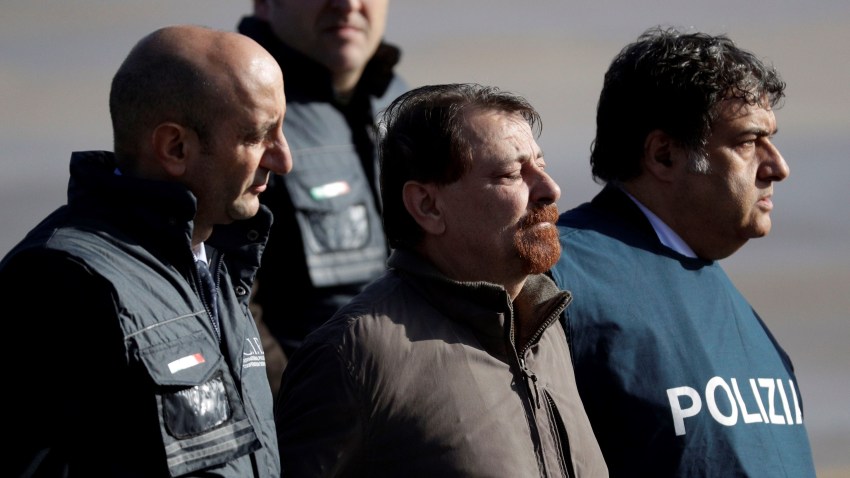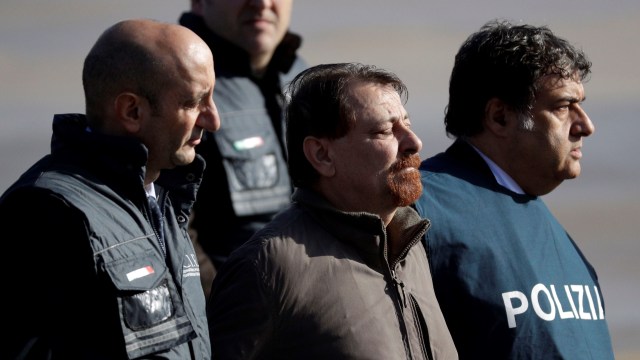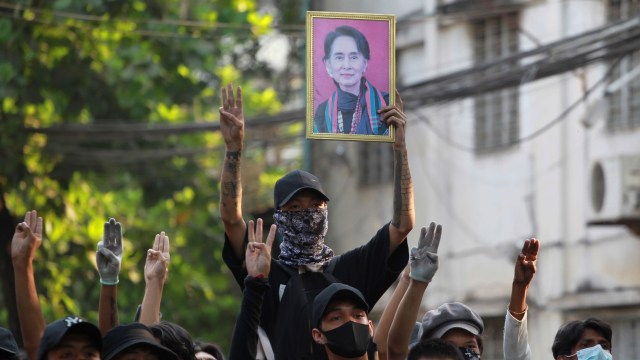Today at WPR, we’re covering the latest chapter in a dispute between France and Italy that dates back to the Cold War as well as an attempt by Myanmar’s military junta to clean up its image.
But first, here’s out take on today’s top story in the news:
Ecuador: A presidential candidate in Ecuador was assassinated yesterday at a political rally in Quito, the capital, just days before voting begins in the country’s presidential and legislative elections. The candidate, Fernando Villavicencio, had been outspoken about the link between organized crime and government officials. (New York Times)
Our Take: Crime, and specifically organized crime, has surged in Ecuador in recent years, transforming the country’s security landscape. The spike in violence has been driven by foreign criminal organizations that have either moved in directly or deputized local gangs in an effort to use the country as a new drug-trafficking route in the region.
Just a few weeks ago, the mayor of Manta, a port city on Ecuador’s Pacific coast, was assassinated. That, combined with the killing of Villavicencio, suggests that the country’s crime surge is now no longer just a security issue, but a political violence issue as well.
To make matters worse, the surge in crime comes at a time when Ecuador’s political landscape has been increasingly paralyzed, due to opposition to outgoing President Guillermo Lasso’s neoliberal economic reforms by supporters of populist former President Rafael Correa as well as the country’s Indigenous movements.
That paralysis is the reason for the country’s early elections this weekend. But it is also exacerbating the deteriorating security crisis, creating a downward spiral that whoever succeeds Lasso as president will struggle to reverse.

In March, the latest chapter was written in a political and legal controversy between Italy and France that dates back to the final decade of the Cold War. France’s highest criminal court definitively rejected the Italian government’s request to extradite 10 former Italian militants for their actions in the 1970s and early 1980s.
But as Federica Rossi writes, while the verdict caps a four-decade-long saga of political decisions and U-turns, court judgements and social mobilizations, it fails to resolve the tensions at the heart of those events.
Italy and France’s Dispute Over 1970s Ex-Militants Takes Another Turn
In March, the latest chapter was written in a political and legal controversy between Italy and France that dates back to the 1980s. But while a verdict from France’s highest criminal court caps a four-decade-long saga that began during Italy’s “years of lead,” it fails to resolve the tensions at the heart of those events. Read more.
When the military junta that rules Myanmar announced last week that it was issuing a partial pardon for the iconic opposition leader Aung San Suu Kyi, it seemed a sign that the regime might be preparing to loosen its grip and perhaps even to compromise with the opposition.
As columnist Frida Ghitis reports, however, that optimistic interpretation is being rejected by many Myanmar observers.
Myanmar’s Partial Pardon of Suu Kyi Is an Empty PR Move
When Myanmar’s ruling military announced last week that it was issuing a partial pardon for opposition leader Aung San Suu Kyi, it seemed a sign that the regime might be preparing to loosen its grip and perhaps even compromise with the opposition. That optimistic interpretation, however, is being rejected by many Myanmar observers. Read more.

We want to hear your take on the issues we cover.
This week’s question: After the coup in Niger two weeks ago, ECOWAS threatened to intervene militarily if the country’s democratically elected president was not restored by this past Sunday. With that deadline now past, a military intervention remains possible, but seems less likely by the day. Should ECOWAS intervene in Niger?
WPR reader Wazeer M., based in Lagos, says:
The potential tragedy in a war scenario is too complicated. ECOWAS should not intervene in Niger. We’re still cleaning up the strategic mess in Libya, where NATO refused to allow cool-headed African leaders to adopt diplomatic solutions.
Got your own thoughts on this week’s question? Just reply to this email to give us your take, along with your name and where you’re based. We’ll include the best ones we receive in the Daily Review over the course of the week. Those selected will also receive a free month of WPR.

After a truck carrying Hezbollah munitions overturned on a mountain road on Wednesday, Lebanon’s army moved the truck to a military post, but not before a brief clash at the scene left two people dead.
It was yet another example of how the army often intervenes to maintain order and tamp down sectarian tensions. But as Francisco Serrano wrote last month, the financial crisis that has pushed Lebanon into a slow-burning collapse over the past few years has also weakened the army, with implications for its ability to continue playing that role:
Lebanon’s Military Could Be the Next Casualty of Its Economic Crisis
July 7, 2023 | Amid a worsening economic crisis, Lebanon’s weakening armed forces are the only thing holding the country together. Read more.
*****
Ahead of New Zealand’s general election in October, foreign policy and defense issues have been pushed into the spotlight for the first time in decades. A recent survey in the country found that “40 percent of respondents saw China’s rise as one of the greatest threats to New Zealand’s safety and security in the next 10 years.”
Successive New Zealand governments have been grappling with the country’s relationship with China, which remains the country’s largest trading partner, as Geoffrey Miller wrote in February following PM Jacina Ardern’s departure.
For New Zealand After Ardern, China Remains a Tricky Balancing Act
Feb. 1, 2023 | After Jacinda Ardern’s surprise departure as New Zealand’s prime minister, relations with China will remain a challenge. Read more.
That’s all for today’s Daily Review. Coming up, we’re covering the challenges facing a multinational force in Haiti and why the attack on the U.S. Capitol on Jan. 6, 2021, was in fact an attempted coup.
Have a great day,
Jakob Cansler
More From WPR
- Alexander Clarkson on what Europe should learn from the coup in Niger.
- Joshua Kurlantzick on democracy’s regression in Southeast Asia.
- Richard Gowan on how to be a policy wonk.
- Miquel Vila Moreno on regional parties’ dilemma in Spain.



